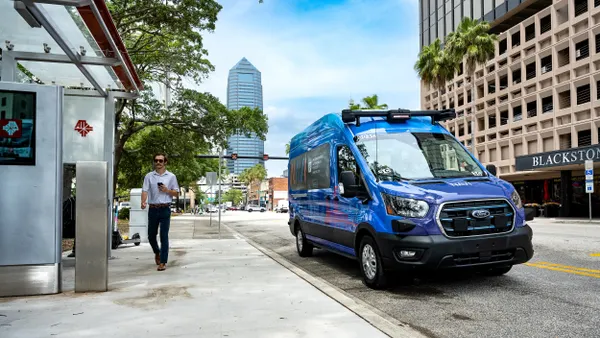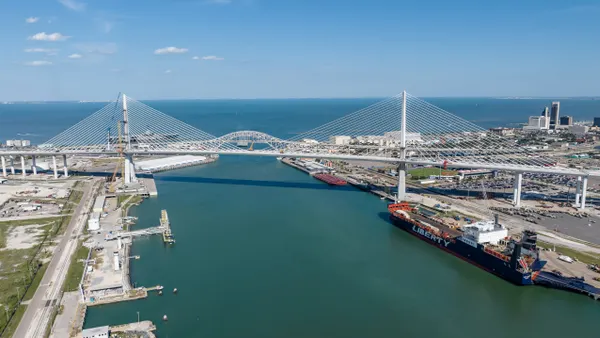CHICAGO — The point of municipal governments is to devise strategies for solving communities' problems and keep them running smoothly. But as cities and towns swell, legal borders don't necessarily correspond to the governance space anymore. Metropolitan area municipal collaborations more effectively and efficiently solve common problems and ease service delivery, compared with one city standing alone, said panelists at the recent Chicago Forum on Global Cities.
"We no longer know where the city starts and where the city ends. Which are the real boundaries of our cities?" said Octavi de la Varga, secretary general for Metropolis, a global association of leaders from metropolitan areas. "It's a challenge for all layers of government."
A number of metro areas in the U.S. have adopted this collaborative approach. Communities in the Boston area banded together to form a viable bike-share program and to develop a unified housing partnership, and Boston Mayor Marty Walsh last week announced plans to partner with other communities to explore collectively purchasing renewable energy. When Salt Lake City approved a housing plan, its leaders encouraged neighboring municipalities to follow suit, acknowledging that issues affecting one city usually bleed over to others.
As resources — namely funding — remain in high demand and low supply, municipalities can achieve greater success by pooling resources. Plus, cities are taking on greater roles in tackling national and international issues, which further strains resources.
By collaborating, cities essentially recognize that an issue "is such a big problem we cannot face it alone," said Claudio Orrego Larrain, former governor of the Santiago (Chile) Metropolitan Region. "All the most important problems we faced as the city of Santiago could not be dealt in a very effective way at a local level... Faced with common problems, we organized specific solutions." Developing regional strategies makes for "a more resilient city," he said.
Panelists identified six leading topics on which metropolitan leaders can collaborate.
- Transportation: "Transportation is probably the most important tool for urban development," Larrain said. Collaborating on mobility and transportation initiatives makes sense because roads and transit routes spill over from urban centers into neighboring communities. "Transportation infrastructure is so critical in shaping cities," said Paul Fletcher, minister of urban infrastructure and cities for the Australian government. He advocates for breaking down silos and fostering greater collaboration, while basing more city planning on transit infrastructure and mobility. "The people who are making the transportation decisions... are not necessarily the people making the urban planning decisions," he said.
- Economic development/tourism: People do not always decouple a city from its surrounding metro area, so developing regional tourism strategies can boost all of the individual local areas at once. When considering South Florida, for example, many people simply refer to the entire area as "Miami" rather than breaking out the separate — yet equally tourist-heavy — neighboring cities, such as Miami Beach or Coral Gables. The same holds true with economic development, including attracting major businesses to a region.
- Lobbying for funding: Municipalities tend to compete for funding from higher levels of government, but panelists suggest that doesn't have to be the case. Plus, one municipality doesn't always hold a lot of clout when lobbying state or national governments for major project funding. But gathering like-minded communities and requesting regional funds can be more successful, said Corine Mauch, Mayor of Zurich, Switzerland. "This is a question of economic promotion," she said, adding that municipalities should prioritize up to two or three projects for collective funding requests.
- Climate change: Climate change is an obvious topic for collaboration because the environment does not abide by human-drawn borders. "You cannot have a plan for one borough of the city, you need to have a general strategy," Larrain said. Action plans can cover pollution reduction, waste reduction and natural resource conservation.
- Social issues: Regional plans can address a wide range of social issues including immigration, violence and substance abuse.
- Housing: Urban areas attract talent because of the plethora of job opportunities, but high costs of living frequently push residents to the suburbs to live. High costs eventually creep to surrounding areas and also impact housing supply. Regional housing plans can keep the entire area's costs and housing supply in check while improving residents' quality of life and commute times, which also eases traffic congestion.
Although some global leaders eschew the idea of a metropolitan governance structure because it adds another level of bureaucracy which can complicate matters, experts say it doesn't have to be that way. "More metropolitan governance ... doesn't mean we need new layers," said de la Varga. There are "lots of different models" for regional collaboration, like creating a separate, non-governmental board or enlisting nonprofits and associations to provide regional oversight, he said.
Cities around the world develop different solutions to the same problems because of cultural and economic differences, but one metropolitan area's needs aren't that diverse from its neighbors, panelists said, and cities should therefore rely on economy of scale in seeking solutions.
"Every time you have some sort of governance structure for metropolitan areas you will have more economic growth, more social cohesion and also more political stability," Larrain said. "Unless we do it, the most important economic challenges we're facing are not going to be addressed in an effective way."










